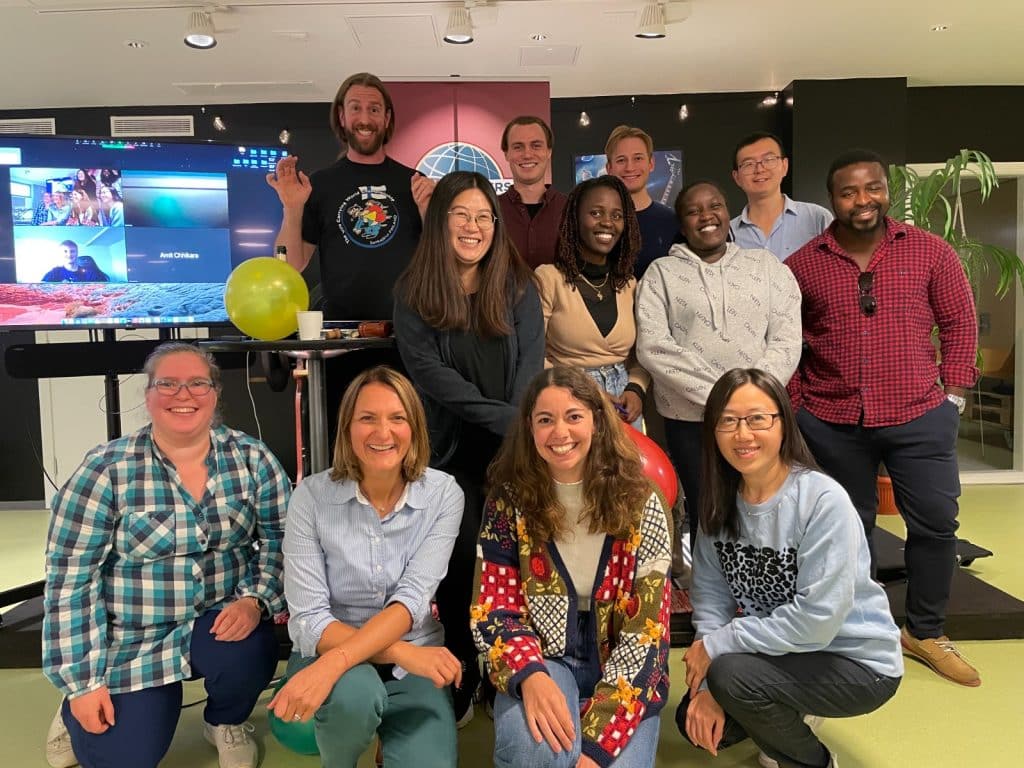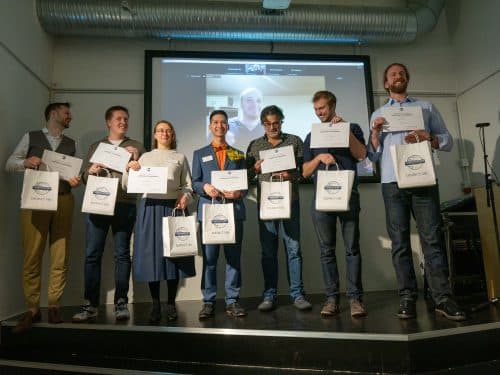
Educational program
Toastmasters’ core education program is the Pathways learning experience, offering members 11 specialized learning paths with more than 300 unique competencies. Pathways are designed to help you fine-tune your public speaking, communication, and leadership skills through regular practice. In a safe and supportive club environment, you will learn at your own pace, utilizing a curriculum that has helped millions meet their goals.
Mentoring program
Mentorship is an integral part of Toastmasters, with benefits that reach far beyond the club meeting. You can be both a mentor or a protégé.
As a mentor, the Pathways Mentor Program is designed to help you build and reinforce the skills needed to provide a positive mentoring experience for protégés.
As protégés, you have a chance to reach out to a broad network of experienced Toastmasters and learn from them. Odyssey Project offers the possibility to find a mentor, a mentee, or a networking pair and to establish and follow up a mentoring relationship. The pairs are automatically assigned based on their desired skills, language, level, and meeting time preference and they are only from the registered user database.
Prepare for a meeting
The success of a club meeting depends on the participants. At each meeting, there are many roles to fill and they play an important part in making the club experience enjoyable.
Below is a list of the club meeting roles. Click on the title for a brief description and resources to help fulfill each role. Please note that roles and responsibilities may vary slightly from club to club, so check with your club officers when you are assigned a role.
The purpose of the Ah-Counter is to note unnecessary words and sounds used by members who speak during the meeting. Words or phrases that may be used inappropriately or unnecessarily include and, well, but, so, and you know. Sounds may include ah, um, and er. Serving in the Ah-Counter role provides an excellent opportunity to practice listening skills.
The responsibilities of the grammarian are to introduce new words to members, comment on the language used during the course of the meeting, and to provide examples of good grammar and word usage.
A hallmark of effective speakers is the ability to express themselves within a specific amount of time. Members rely on the timer to pace speeches and practice adhering to a time frame. The timer is also responsible for tracking every part of the meeting agenda.
To fulfill the role of the timer, you must know each presenter’s speech length. The timer’s role is fundamental to the success of every meeting.
The main duties of the Toastmaster are to coordinate and conduct the entire meeting, introduce participants, and act as a genial host. The Toastmaster sets the tone for the meeting. This task is generally reserved for members who are quite familiar with the club and its procedures.
Serving as Toastmaster is an excellent way to practice planning, preparation, organization, time management, facilitation, motivation, and team-building skills as you strive to make the meeting one of the club’s best.
The Table Topics® session is the portion of the meeting designed to give every member and guest of the club an opportunity to speak extemporaneously for a minute or two. The Topicsmaster is responsible for preparing and issuing an original, creative topic or topics. Each speaker may be given an individual subject or presented with a choice of subjects from which they choose or draw at random.
Serving as Topicsmaster supports leadership skills including planning, preparation, organization, time management, and facilitation.
Every speaker is a role model and club members learn from one another’s speeches. A major part of every Toastmasters meeting revolves around two or more scheduled speakers. Members prepare their speeches based on projects in the education program.
Giving a prepared speech provides an excellent opportunity to practice your communication and leadership skills, including planning, organization, and time management.
Table Topics helps develop your ability to organize your thoughts quickly and respond to impromptu questions or topics. The Table Topics section of the meeting usually follows the prepared speech presentations. The Toastmaster of the meeting introduces the Topicsmaster, who gives a brief description of the purpose of Table Topics.
The Topicsmaster states the question or topic briefly and then calls on a member or guest at random to respond. Each Table Topics speaker receives a different topic or question.
Serving as an evaluator is an opportunity to practice leadership skills, including listening, critical thinking, providing feedback, and motivation. At first, it can be intimidating to provide feedback. Always remember that the most important benefit of Toastmasters for members is the honest, fair, and supportive evaluation of their presentations and leadership accomplishments.
Make use of the Pathways evaluations to help you clearly identify where speakers succeeded and where there is room for continued growth and improvement. For each presenter you evaluate, find a few things they did well and mention them in your evaluation. Your purpose is to help members be more self-confident and improve their speaking skills.
The General Evaluator is the member who evaluates everything that takes place throughout the meeting. The General Evaluator role provides excellent practice in leadership skills such as critical thinking, planning, preparation, organization, time management, motivation, and team building.
The General Evaluator is responsible to the Toastmaster of the meeting. General Evaluators are responsible for the evaluation team, which consists of the timer, grammarian, Ah-Counter, speech evaluators, and Table Topics evaluator, if your club has one.
Leadership skills
Every club has a board of officers who are responsible for the club performance and efficient operation. As an elected officer, you have the opportunity to aid in your club’s success and gain valuable hands-on leadership experience.
Unlike other training programs, where you learn how to be a successful leader by reading books and attending lectures, Toastmasters gives you the opportunity to gain practical leadership experience while helping people learn and grow in their professions and their personal lives.
Serving as a club officer is a great responsibility and an exciting opportunity. Your term of office is filled with chances for you to renew your perspective, practice teamwork, and develop your capacity to translate values and strategies into productive actions.
Club officers’ roles explained:
Club President. The President helps members and fellow officers achieve results.
Vice President Education. This club officer is a master Pathways guide.
Vice President Membership. VPM’s efforts and enthusiasm help recruit and retain members.
Vice President Public Relations. As the master of promotion, you help increase your club’s visibility and attract visitors.
Sergent at Arms. Tips for successfully filling this challenging role and making meetings shine.
Club Secretary. The Secretary is the glue that holds the club together.
Club Treasurer. When it comes to keeping members in good standing, the Club Treasurer is priceless.

Networking
There are more than 300K Toastmasters worldwide, and every member has a real chance to meet a bunch of them.
By attending Area and Division contests, District conferences, online pieces of training, mentoring programs, or just visiting clubs around the world either online or in person, you can meet like-minded people and build precious connections growing your professional network.
Toastmasters is a great opportunity to travel because we hone our public speaking skills and also meet incredible people along the way.
Distinguished Toastmaster
The Distinguished Toastmaster (DTM) award represents the highest level of educational achievement in Toastmasters. It requires years of commitment and countless hours of volunteerism. It is expected that members will spend those years focused on developing exemplary public speaking and leadership skills.
